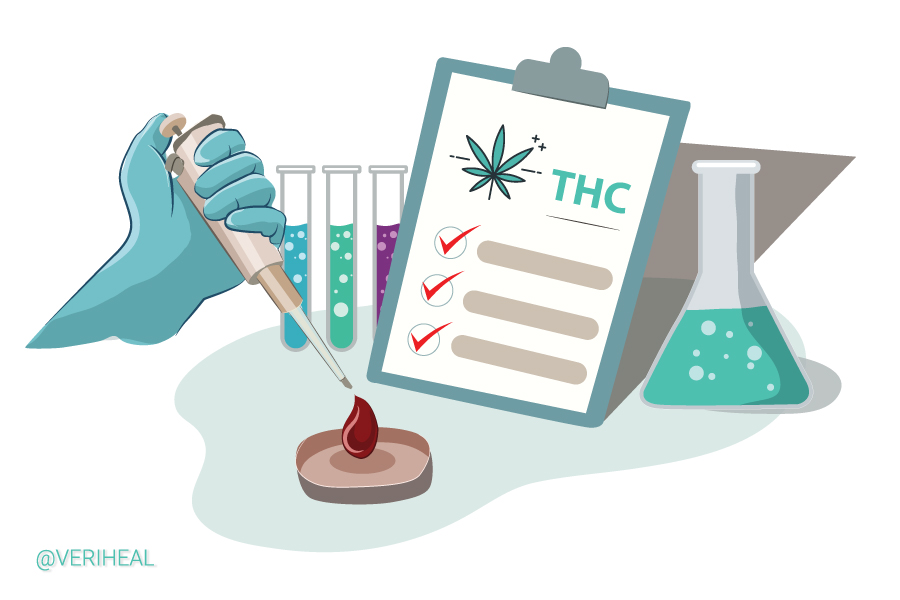By now, we have all seen that the quality and potency of cannabis is increasing and improving compared to long ago and even compared to a while back. Logic would suggest that when consuming cannabis of higher potency, it would increase the cannabis concentrates found in blood while increasing intoxication and effects. However, a recently published study by CU Boulder suggests that consuming higher potency concentrates of cannabis may increase the THC levels in the blood but that doesn’t mean it will necessarily get you higher.
What are Cannabis Concentrates?
Cannabis concentrates can be found in many different products. Concentrates can be described as products made from cannabis that has been processed in order to isolate and keep the most desirable compounds of the plant such as the cannabinoids such as tetrahydrocannabinol (THC), cannabigerol (CBG) and cannabidiol (CBD). Cannabis concentrates generally have a greater quantity of cannabinoids and terpenes when it is being compared to the flower (bud).
A Study Shows That High THC Blood Levels isn’t an Indicator of Intoxication:
CU Boulder’s lead author on the study, Cinnamon Bidwell, explained that there were “striking differences in blood levels between the two groups, yet they were similarly affected”. The study became the first to assess the acute impact of cannabis by using real-words consumers of cannabis from the legal market.
This study, published in JAMA Psychiatry, comes from the CU Change Lab along with more studies that have the potential to inform cannabis regulatory decisions such as roadside sobriety tests. Thus far, the results have been supportive and promising, but the same study revealed something of concern too.
Why You Should Get Your Medical Marijuana Card
Veriheal has satisfied millions of patients nationwide by giving them access to these benefits
- Larger purchase limits
- Peace of mind
- Enhanced legal protection
- Access to higher potency strains
- Save up to 25% on cannabis purchases
- Skip the line at the dispensary
It turns out that consumers who make use of cannabis concentrates are more likely to experience long-term risks of side effects. At the same time, the study raised a lot of questioning eyebrows as to how fast tolerance can build up. The researchers of the study are also wondering whether people may be able to achieve the same desired outcomes but with lower doses or potency. Researchers are still prohibited from handling or administering cannabis since it is still illegal at a federal level. Many studies are then provided with cannabis from the government, which often contains much less THC than what’s available in the real-world today. Thus, giving Bidwell and her team quite the challenge.
In order to conduct and complete the study, Bidwell and her team went around in something called “cannavans” to act as mobile laboratories. These cannavans consisted of two white Dodge Sprinter vans which enabled them to drive to residences of the study participants. The participants consumed cannabis in their homes and then walked out to the mobile laboratories for the tests. Cinnamon Bidwell said: “We cannot bring legal market cannabis into a university lab, but we can bring the mobile lab to the people.”
The team assessed 121 regular cannabis consumers with around half typically consuming concentrates such as oils, waxes, and extracts. While the other half typically consumers the buds of cannabis. Those consuming the bud typically had 16% or 24% THC while those making use of concentrates contained either 70% or 90% THC. The researchers tested the participants’ blood, measured their mood and intoxication level as well as assessed the participant’s cognitive functioning and balance. Each of these was done on different occasions being before, directly after and one hour after they consumed cannabis.
The results displayed that those with the higher THC levels at all three of those occasions were the ones who used concentrates instead of bud. The concentrate THC levels in blood were nearly double that of those who consumed buds. Despite this, their self-reports on the intoxication revealed that they were all feeling remarkably similar. The participants’ measures of balance and cognitive functioning were also similar. Kent Hutchison, a co-author of the study, explained that the people taking the 90% THC concentrate were significantly less compromised than they had expected. Kent went on to point out that if the same was done with alcohol, it would be a different story. The study also found that balance was 11% worse after cannabis consumption and that the participants’ memory was also impaired but within an hour, those impairments faded away. Bidwell hopes: “This could be used to develop a roadside test, or even to help people make personal decisions”.
For now, the team has provided us with this evidence but left themselves with more questions to answer. Thanks to research like this we know that THC levels in the blood are not an accurate representation of how intoxicated the individual would be as well as opening the door for research to explore getting the desired effects from less cannabis.
Author, Share & Comments
















